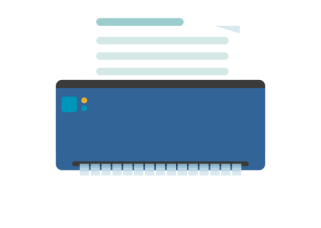
Quicklinks
Top Results

Chances are, you’ve spent some time thinking about what to do with the first check from your first "real" job. It could be the most money you’ve ever brought home, and the possibilities seem endless.
Building a budget could help you create a solid foundation and make sure there’s enough to cover your priority expenses.
Not as much as you thought?
You may notice that your take-home pay is lower than what you expected. That’s because your employer has taken out the required tax deductions such as federal, state, Medicare and maybe Social Security. And if you chose employer electives like health care benefits, life insurance or disability coverage, your take-home pay will be reduced a bit more. The final amount, what’s left, is what you have to allocate to everything else.
That’s where a budget comes in.
Building that first budget
Creating your first budget isn’t as difficult as it might sound. These steps will get you going:
1. Nail down your income
Begin by calculating your total monthly income. Add up everything — wages or salary, part time or freelance work and so on.
2. Look at your expenses
Keep track of your monthly expenses by dividing them into fixed expenses (rent, utilities, insurance, etc.) and variable expenses (such as groceries, transportation and entertainment).
3. Consider your financial goals
They say that vague goals, no matter how important, are often left undone. So be sure to set specific, measurable, achievable, relevant and time-bound (SMART) financial goals that match your aspirations. Those goals could be anything from paying off debt to saving for a new car to setting up an emergency fund.
4. Allocate the funds
Figure out what goes where. Look at your income and expenses, consider your goals, and allocate your money towards them. Decide how much you’ll aim to put in your savings account each pay period. What’s left is your disposable income or discretionary spending.
5. Review and revise
Watch your budget the first few months, tracking your spending to make sure you're moving towards your financial goals. Be flexible, stay disciplined and adjust your budget when needed to cover changes in your income, your expenses or your needs. (And those changes will happen!)
Set yourself up for success
Budgeting is an important first step toward financial security and reaching your long-term goals.
What’s more, establishing a budget now will help you develop the financial skills and habits you need to manage your money successfully for years to come.





